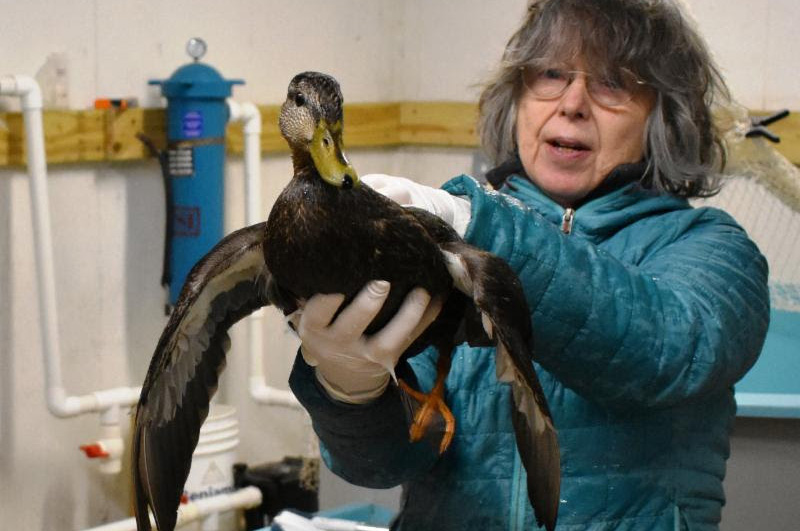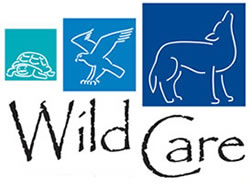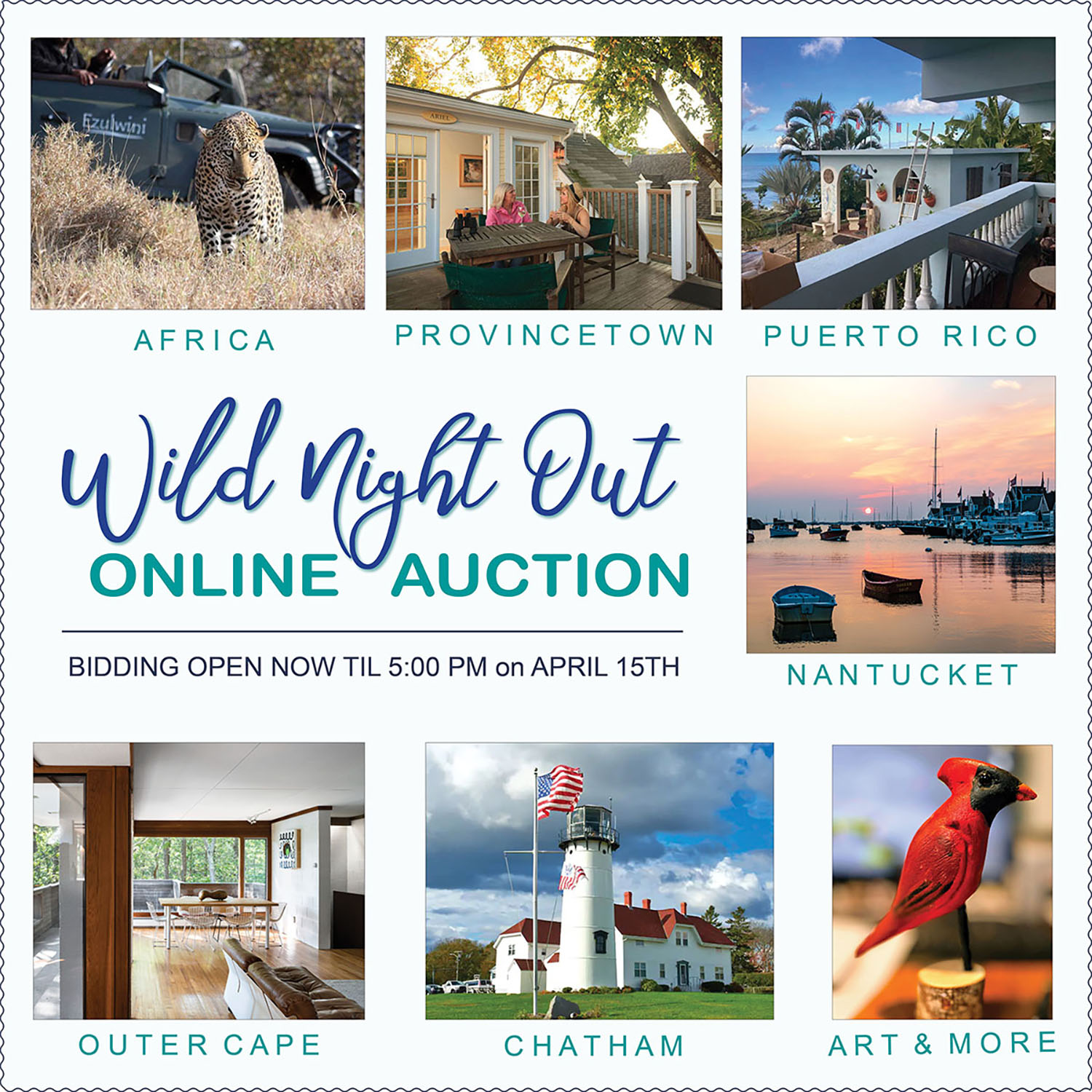
And the Winner Is… American Black Duck #1856
By Jennifer Taylor, Animal Care Coordinator
A wonderful American Black Duck was brought into Wild Care from Chatham, at the end of December. What a poor thing! In the early morning she was sitting in the middle of a road. The rescuer realized something was wrong, and turned his vehicle around to help. At that moment, he witnessed a Red-tailed Hawk swoop down and grab the duck! Luckily (for the duck), it was dropped within a couple of seconds, and ran into the brush to hide.
On admission, her feather and body condition was normal. Being duck hunting season, we suspected “gun shot” to be the reason why this bird was initially hurt and found on the road. We immediately took radiographs (x-rays). She had a gun shot pellet in her breast, and in her left leg.
Other issues of concern included eye trauma, and wounds on her head. We could not find any entry or exit wounds from the pellets, often the case because of such thick feathers on ducks. We were hoping the wounds on her head were from the hawk and not from the gun shot. The rescuer was contacted and he confirmed the hawk had lifted the duck up by its head. Sure enough, we found the pattern of talon punctures. Chances were better this way, but the prognosis was still looking grim.
We consulted a veterinarian who confirmed from the radiographs that there was a small fracture to the bird’s leg (fibula) near the pellet. Removal of the pellets would hopefully not be necessary. We then splinted and wrapped that leg.
We conducted bloodwork when she was hydrated and stabilized. Good news and bad news… Everything was normal except she had LEAD POISONING on top of everything else. Ugh. One thing after the other. We questioned what the sequence of events could have been for this bird… Was she weakened by lead poisoning and then landed to rest on the road? Had she been shot years ago, and the pellets just remained in her body? Had the hawk dropped her twice? Well, forensics are often inconclusive at wildlife clinics. If only the patients could talk to us.
Added to all of these obstacles was the INTENSE stress this particular duck was experiencing. All of our patients are stressed here. We try to minimize stress as much as possible. But after all, we are giant predators, and they are afraid of us. Most of them settle into some kind of a compromise with us after a few days. They then begin to freak out less, bite and scratch less, and show relief when we are finished treating them and place them into a clean caging habitat with fresh food. But not this duck! (Her movie at Wild Care would be called “50 First Intakes”.)
We handled this duck as little as possible, but there were many medical issues to deal with. Through all of the fluids, eye drops, medications, splinting, bloodwork, chelation , and daily pool time, she managed to survive her stay with us and passed with flying colors. Numerous escape attempts let us know she could fly well, but it was not until her third lead test that we were sure she was ready for release. Thank goodness! We rehabbers were quite stressed ourselves every time we dealt with the “dreaded” Black Duck. Ducks are powerful, and each time we handled her there was the good possibility of her injuring herself.
AMBD #1856 beat the odds and is finally rid of us!
It is unprofessional to say, but she gets the “Worst Patient Award” this year hands down!
 Radiographs of pellets in breast and leg. Look for the bright, white solid circles.
Radiographs of pellets in breast and leg. Look for the bright, white solid circles.

We hold waterbirds up for their “Physical Therapy Flapping”, before and after swim time. This is to strengthen their muscles.

 There is very little “black” in an American Black Duck. They have gorgeous shades of amber, browns, and tans.
There is very little “black” in an American Black Duck. They have gorgeous shades of amber, browns, and tans.
Finally the day we all were waiting for!!! Leah Myrbeck, one of our Wildlife Rehabilitators, opens the box and the duck is outta there!

Wild Night Out Online Auction
READY, SET, BID… We are so excited to announce that our Wild Night Out Online Auction is now live!
READ ALL NEWS
CALENDAR OF EVENTS
04 April, 2024
Wild Night Out Online Auction
EVENT DETAILS
05 April, 2024
Wild Night Out
EVENT DETAILS
28 February, 2024
Wildlife Winter/Spring Talk Series
EVENT DETAILS

DID YOU KNOW??
Wild Care has a state-of-the-art seabird therapy pool, which allows seabirds and waterfowl to exercise on running water. This will help our bird friends recover more quickly so they can get back to their watery habitats!

